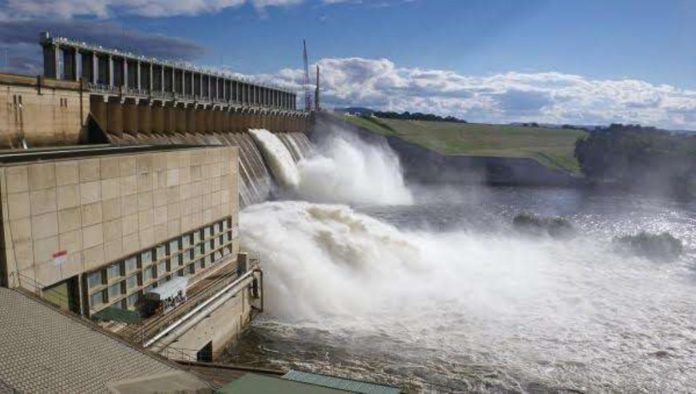The Weija Gbawe Municipal Directorate of the National Disaster Management Organisation (NADMO) has asked residents living around the Weija Dam to relocate in the wake of an imminent spillage of the dam by the Ghana Water Company Limited.
That, the Directorate said, was to prevent the loss of lives and the destruction of property because of the imminent spillage of excess water to save the dam.
The Weija-Gbawe Municipal Director of NADMO, Emmanuel Adu-Boahene, who gave the advice in an interview with the Daily Graphic last Wednesday, stressed that his outfit had started going round the various communities, especially areas around the downstream, to sensitise people to relocate to avoid disaster.
The GWCL has said that the water level had started rising due to the recent rains.
“This is to inform you that with the onset of the rains, the Weija Dam is gradually experiencing a rise in its water level, and failure to commence immediate spilling may result in endangering lives and property,” the letter stated although it fell short of specifying a date for the intended spillage.
“Even though we intend to start this spillage at a very low rate to minimise its effect downstream, the actual rate would be determined by the inflow of water into the dam,” the letter signed by the GWCL Regional Chief Manager, Charles Tulashie, to the Managing Director of the company added.
The letter, dated March 7, 2024, was copied to a host of individuals, including the Weija-Gbawe Municipal Chief Executive, the Ga South Municipal Chief Executive, the Station Manager of the Weija Water Treatment Plant, the NADMO Regional Director, National Security at the Weija Gbawe Municipal Assembly and the NADMO Coordinator at the Ga South Municipal Assembly.
Safeguard
The GWCL emphasised that “the spillage would continue as long as the level of water in the dam keeps rising. This is to safeguard the dam from any possible collapse”.
Mr Adu-Boahene said aside the sensitisation of residents to make them understand why they needed to move, the assembly was undertaking dredging activities in the municipality in water courses in order to prevent flooding during a downpour.

